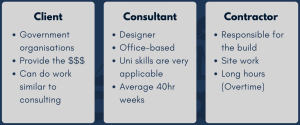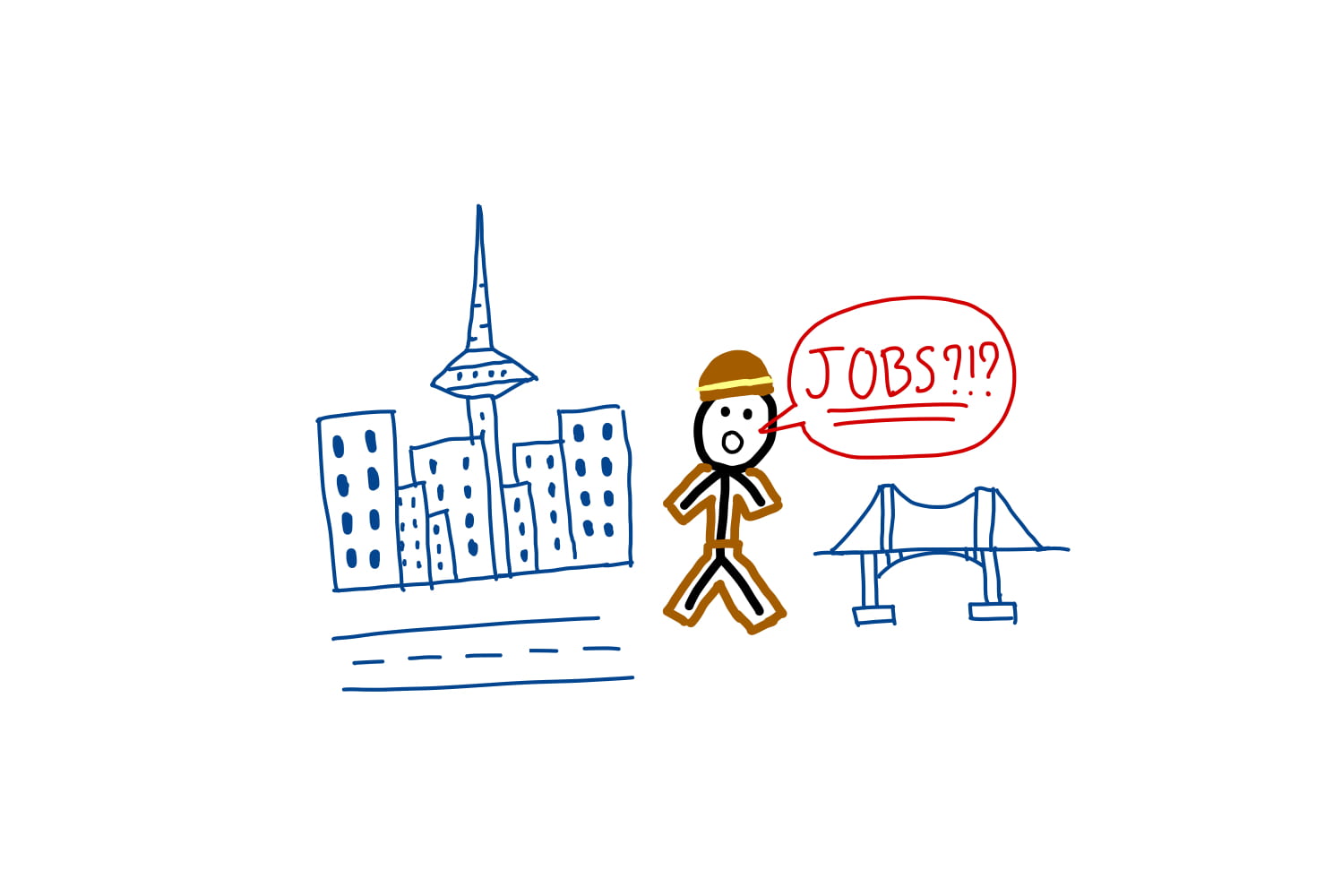Civil is Broad!
One of the main appeals of civil engineering is undoubtedly its flexibility. Water, transport, environment, geotechnical, construction and everything in between. But with so many options, which is the right one for you?
My opinion? Just decide later!
Throughout your civil engineering degree, you’ll be exposed to many different courses that cover pretty much everything. Perhaps not exhaustively in-depth, but enough to give you a taste of what it is like. Try it out first, and see what courses you enjoy and what you’re good at. Summer work experience is also another great way to test the water. The advice I often get from engineers I’ve talked to is to be open-minded and try different things. After all, the best way to taste the food is to eat it!
The good news is that you won’t need to choose your electives until your third and fourth years. Even then, you’re still taking many of the same courses as other civil engineering students. The knowledge you’ll acquire from those courses will be transferable to everything you do as a civil engineer. So regardless of what you do and what you choose for your electives, you’ll still have the flexibility to pursue the many, many different paths that Civil Engineering has to offer.
Contracting vs Consulting!
You’ll most likely encounter two types of work in civil engineering; contracting and consulting. But what’s the difference between the two?

The way I understand it, consultants do the planning for building stuff, and contractors make sure stuff is built according to plan. The idea is this:
- A client who wants to build stuff
- The client goes to a consultant
- The consultant does the planning, checking regulations, estimating cost, design..etc.
- Consultant issues the plan to the contractors
- Contractors bid for the job
- The contractor who won the bid for the project builds stuff according to the agreed plans, cost, timeline…etc.
Consultants are designers and give engineering advice. Consultants deal with many office work on computers with some on-site inspections. Their tasks include meetings, report writing, planning work, design, legal paperwork, review engineering drawings, calculations, admin tasks, CAD works…etc. Expect a 9-5pm, Mon-Fri, 40 hours work week. (For my internship, it is 8:30pm-5pm.)
In contrast, contractors are responsible for the build and deal with the on-site work. Their tasks include general supervision and bookings, quality assurance, surveying, health and safety, ensuring legal compliance (environmental standards..etc.) and general problem-solving. Expect some labour work and a lot of interactions with sub-contractors and skilled workers (tradies such as builders…etc.). Contractors tend to work long hours (earlier start and later finish time than consultants), and some jobs may require you to work on Saturday. Although the working hours and days vary from job to job and company to company.
Career in Civil
The beauty of civil engineering is that it makes up everything you see around you! Regardless of what you do, you can always switch to doing the things you enjoy more. As for the job opportunity, Civil Engineer is listed on the New Zealand construction and infrastructure skill shortage list as well as the long-term skill shortage list. This means that the high demand for civil engineers is unlikely to change in the near future. Moreover, the qualification and the work you do in New Zealand are highly valued all over the world. You can rest assured knowing should you want to move to a different country for a different life experience, you can do so while maintaining your career without having to start over. In fact, I know a few who did just that; moving to England for a few years to see more of the world! I would be lying if I said I was not tempted to do the same thing!
